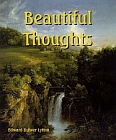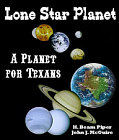
Religion of Geology

Description
Religion of Geology
and Its Connected Sciences
by
Edward Hitchcock
"Science has a foundation, and so has religion; let them unite their foundations, and the basis will be broader, and they will be two compartments of one great fabric reared to the glory of God.
13 point font
**************
Excerpt:
Let the one be the outer and the other the inner court. In the one, let all look, and admire, and adore; and in the other, let those who have faith kneel, and pray, and praise. Let the one be the sanctuary where human learning may present its richest incense as an offering to God; and the other the holiest of all, separated from it by a veil now rent in twain, and in which, on a blood sprinkled mercy seat, we pour out the love of a reconciled heart, and hear the oracles of the living God."-M'Cosh.
************************
Most of the following lectures were written as much as eight or ten years ago, though additions and alterations have been made, from time to time, to adapt them to the progress of science. They were undertaken at the suggestion of my friend, Rev. Henry Neill, then of Hatfield, now of Lenox. I had no definite intention as to the use to be made of the lectures; but having for many years turned my attention to the bearings of science, and especially of geology, upon religion, I felt a desire to put upon paper the final results of my examinations.
I threw them into the lecture form, that I might, if best, deliver them to the geological classes which I should instruct in the college with which I am connected. This I have done for many years, and also have used them in various places before lyceums. They are at length published, from a conviction that something of the kind, from some quarter, is needed. Many of the thoughts, indeed, which, at the time they were put upon paper, were original, have since been brought out by other writers. Yet enough of this description probably remain to expose me to severe criticism. I beg the intelligent Christian, however, before he condemns my views, to settle it in his mind what he can substitute for them that will be more honorable to religion. It is much easier to find fault with a mode of defending the truth than to invent a better method. We may not be pleased with certain views in vindication of religion, and yet the alternative of rejecting them may be so much worse as to lead us at least to be silent. Would that Christian critics had always kept this fact in mind when writing upon the views of geologists! They would find often that they are straining at a gnat and must swallow a camel.
If my views are erroneous, as exhibited in these lectures, I cannot plead that they have been hastily adopted. Most of them, indeed, have been the subjects of thought occasionally for thirty years. I hope, however, that all my suggestions will not be thought of equal importance in my own estimation; since some of them are merely hypothetical hints thrown out for the consideration of abler minds.
This work does not exhibit quite so much of logical exactness as I could wish. But my leading object has been fully carried out, viz., to exhibit all the religious bearings of geology. Several of the lectures, however, have been written as if independent of all the rest; and, therefore, the reader will find some leading thoughts repeated, but always in different connections.
After acknowledging that more than a quarter of a century has elapsed since this subject first engaged my attention, it may be useless for me to ask any indulgence from criticism. But really, I feel less prepared to write upon it than I did during the first five years in which I studied it. I have learnt that it is a most difficult subject. It requires, in order to master it, an acquaintance with three distinct branches of knowledge, not apt to go together. First, an acquaintance with geology in all its details, and with the general principles of zoology, botany, and comparative anatomy; secondly, a knowledge of sacred hermeneutics, or the principles of interpreting the Scriptures; thirdly, a clear conception of the principles of natural and revealed religion.
As examples of efforts made by men who were deficient in a knowledge of some of these branches, I am compelled to quote a large proportion of the works which, within the last thirty or forty years, have been written on the religion of geology; especially on its connection with revealed religion. I am happy to except such writers as Dr. J. Pye Smith, Dr. Chalmers, Dr. Harris, Dr. Buckland, Professor Sedgwick, Professor Whewell, Dr. King, Dr. Anderson, and Hugh Miller; for they, to a greater or less extent, acquainted themselves with all the subjects named above, before they undertook to write. But a still larger number of authors, although men of talents, and familiar, it may be, with the Bible and theology, had no accurate knowledge of geology. The results have been, first, that, by resorting to denunciation and charges of infidelity, to answer arguments from geology which they did not understand, they have excited unreasonable prejudices and alarm among common Christians respecting that science and its cultivators; secondly, they have awakened disgust, and even contempt, among scientific men, especially those of skeptical tendencies, who have inferred that a cause which resorts to such defenses must be very weak. They have felt very much as a good Greek scholar would, who should read a severe critique upon the style of Isocrates, or Demosthenes, and, before he had finished the review, should discover internal evidence that the writer had never learnt the Greek alphabet.
On the other hand, prejudices and disgust equally strong have been produced in the mind of many a man well versed in theology and biblical exegesis by some productions of scientific men upon the religious bearings of geology, because they advanced principles which the merest tyro in divinity would know to be false and fatal to religion, and which they advocated only because they had never studied the Bible or theology.
And here I would remark that it does not follow, because a man is eminent in geology, that his opinion is of any value upon the religion of geology. For the two subjects are quite distinct, and a man may be a Coryphæus in the principles of geology, who is an ignoramus in its religious applications. Indeed, many of the ablest writers upon geology take the ground that its religious bearings do not belong to the science.
These statements, instead of pleading my apology for the following work, may only show my temerity and vanity. Nevertheless, they afford me an opportunity of calling the attention of the religious public to the great inadequacy of the means now possessed of acquiring a knowledge of the different branches of natural science. I refer especially to comparative anatomy, zoology, botany, and geology, in our literary and theological seminaries. The latter, so far as I know, do not pretend to give any instruction in these branches. And in our colleges that instruction is confined almost entirely to a few brief courses of lectures; often so few that the students scarcely find out how ignorant they are of the subjects; and hence those who are expecting to enter the sacred ministry vainly imagine that, at almost any period of their future course, they can, in a few weeks, become sufficiently acquainted with physical science to meet and refute the skeptic. In all our seminaries, however, abundant provision is made, as it ought to be, for the study of intellectual philosophy and biblical interpretation.
So well satisfied are two of the most enlightened and efficient Christian denominations in Great Britain-the Congregationalists and the Scottish Free Church-of the need of more extensive acquaintance with the natural sciences in ministers of the gospel, that they have attached a professorship of natural history to their theological seminaries. That in the New College in Edinburgh is filled by the venerable Dr. Fleming; that in the New College in London by Dr. Lankester. From a syllabus of Dr. Fleming's course of lectures, which he put into my hands last summer, I perceive that it differs little from the instruction in natural science in the colleges of our country. This being the case, it strikes me that this is not exactly the professorship that is needed in the theological seminaries of our country. But they do need, it seems to me, professorships of natural theology, to be filled by men who are practically familiar with the natural sciences.
If any such chairs exist in these seminaries, I do not know it. They are amply provided with instruction in the metaphysics of theology, hermeneutics, and ecclesiastical history; and I should be sorry to see these departments less amply provided for. But here is the wide field of natural theology, large enough for several professorships, which finds no place, save a nook in the chair of dogmatics. This might have answered well enough when the battle-field with skepticism lay in the region of metaphysics, or history, or biblical interpretation. But the enemy have, within a few years past, entrenched themselves within the dominions of natural science; and there, for a long time to come, must be the tug of the war. And since they have substituted skeletons, and trees, and stones, as weapons, in the place of abstractions, so must Christians do, if they would not be defeated. Let me refer to a few examples to show how inadequately furnished the minister must be for such a contest, who has used only the means of instruction provided in our existing seminaries, literary and theological.
524 pages - 7 x 8½ softcover
ISBN-10: 1610337700
ISBN-13: 9781610337700
















